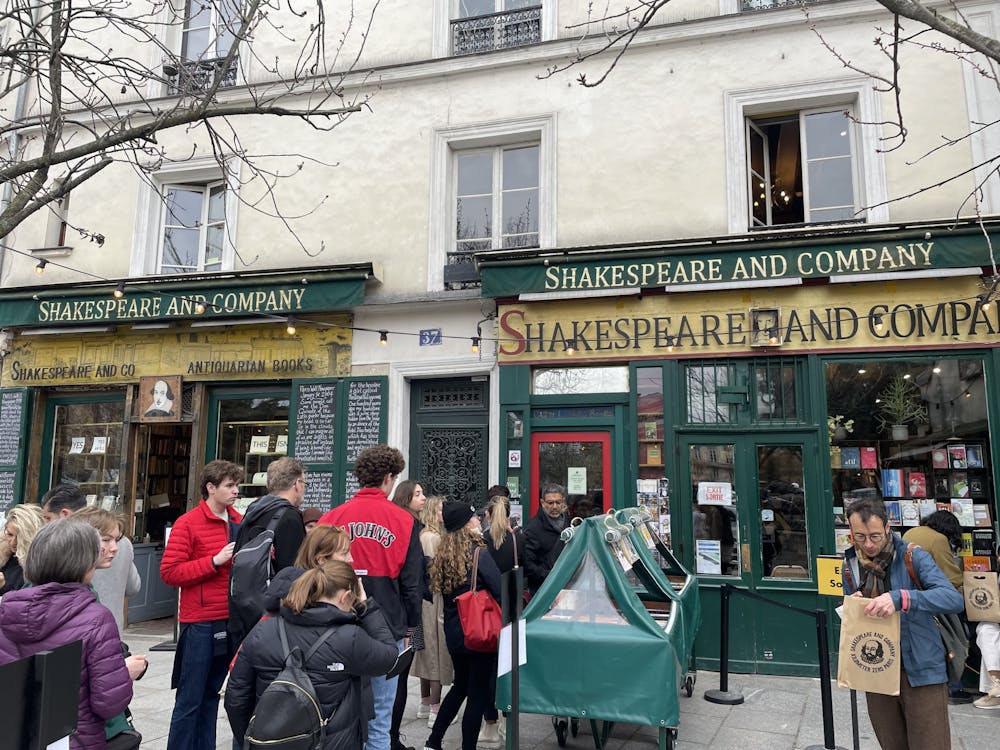
Like most people, I have had a lot of time to think and reflect lately. One theme keeps coming back to me. What will the world be like after the coronavirus (COVID-19) pandemic is over? Tragedies and national emergencies do change the nation, the world and the way we live. The ending of World War II led to the Cold War and an arms race between the U.S. and the Soviet Union. The wars in Iraq and Afghanistan were a direct effect of 9/11. Going to the airport has never been fun, but 9/11 created the need for the TSA, and we’ve been removing our shoes and tossing bottled water at the airport ever since.
The virus has hit Italy particularly hard, and the country now has more COVID-19 deaths than even China. Italy is famous for its bustling plazas and café culture, not for its people quietly sitting in their homes alone.
Will tourists once again flock to big cities with their restaurants, theaters and museums? Will Americans stop hoarding toilet paper, tissues and hand sanitizer? These are just a few of the things that have changed since COVID-19 emerged. Will national borders across Europe reopen? Who will be the NCAA, NBA and NHL champions this year? Will there be simply an asterisk in the record books? The 2020 games in Tokyo have been postponed. While disappointing to fans, this is economically crushing to Japan who has invested in stadiums, arenas and other infrastructure. For many athletes, this was a once in a lifetime opportunity to compete in a sport for their country.
Even in my community I have seen how life has changed. My local Barnes and Noble started placing seats and tables eight feet apart before finally closing their doors.
COVID-19 is understandably having an effect on the 2020 presidential race. Will President Donald Trump’s response to the outbreak hurt his chances at the ballot box, or will Americans not want to change leaders during a national emergency. Former Vice President Joe Biden is trying to capitalize on Trump’s response by showing how he would have handled the crisis differently.
Like other viral outbreaks and pandemics, the coronavirus outbreak will eventually end. Testing, social distancing and anti-viral drugs should eventually stop the spread and resulting deaths. How long this will take is up to state governments and the federal government. More testing kits and sites are needed. Social distancing has been spotty at best up to now.
I have a unique situation because I’m in the Army. I am supposed to move this summer for the final time before my retirement. By the time the quarantine ends, we are likely moving or preparing to move. My son has likely played his last soccer game with his friends at school while my other son will have few opportunities to ride his horse at his weekly lessons.
Across America, high schools and colleges are canceling graduations. My daughter has worked 12 years for the opportunity to finally walk across the graduation stage. There is a possibility that this will no longer be the case. There will be no goodbyes to favorite teachers and friends. The expensive prom dress that we bought her: likely not being used anytime soon.
Today’s technology has at least softened the blow from our forced social distancing. Apps like Facebook, Instagram, Snapchat and Skype have helped keep us connected. With Amazon, Netflix and Hulu, we are able to catch up on shows and movies that we’ve been meaning to watch. Will we as a society revert back to theaters, arenas and restaurants when this crisis is finally over? People are often creatures of habit. Our collective habits can change over time. We’re realizing how many activities can be conducted in a virtual environment. Do we need offices with a large carbon footprint when we can work from our living room and home office? Will Sunday mass become something that people do through apps like Zoom?
In my short 41 years I have already seen our society become slightly more introverted. Within homes, you often see six or more people on different electronic devices. Go to any Major League Baseball game, and you’ll see countless fans staring at their phones rather than the action on the field. DoorDash and Grubhub have eliminated the need to dress up, make a reservation and eat at an actual restaurant. While cozy nights alone at home are necessary once in a while, they can be isolating when they’re too often.
The COVID-19 pandemic has already exposed cracks in our society. I see scores of young people playing basketball in parks that have yet to be closed, while other people wave warily at you, not wanting to get too close. For the first time in my life, I’m witnessing competitiveness at the grocery store. “You snooze, you lose” is real nowadays.
Generational divides are also being exposed. Older people are experiencing the brunt of this deadly virus. Younger people are gathering together, despite the evidence that they will infect scores of older people eventually. Somewhere in the middle are people in their thirties, forties and fifties who are trying to occupy small kids at home and effectively deal with their teens’ need for socialization and safety. With many schools across the country closing for the year, parents are learning how to become teachers themselves.
I, for one, am tired of looking at my phone. There are only so many COVID-19 memes to look at. Will we as a society begin reading more printed books again, or will this pandemic and its changes simply be an anomaly?




